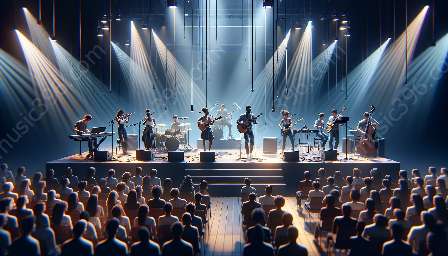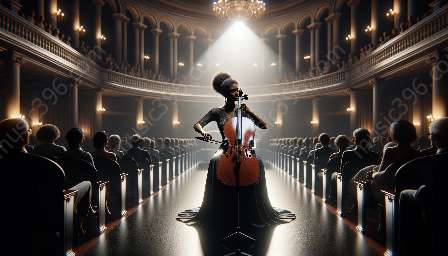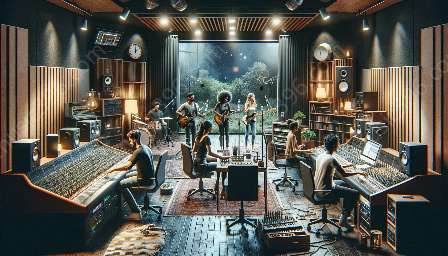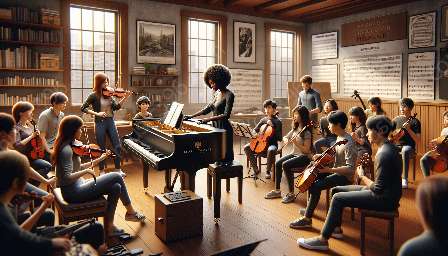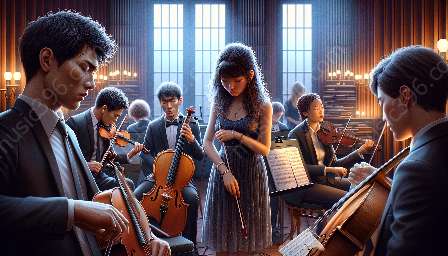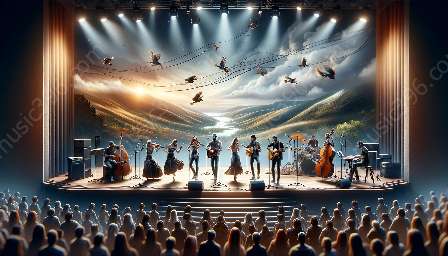Improvisation is a vital aspect of music performance pedagogy, intertwining with the pedagogy of music performance to create a dynamic and soulful experience. It involves spontaneous creation and artistic expression, enhancing musicians' abilities across various genres and styles.
The Significance of Improvisation in Music Performance Pedagogy
Improvisation in music performance pedagogy offers a multitude of benefits, including fostering creativity, enhancing musical communication, and developing a deeper understanding of music theory and harmony. Additionally, it promotes critical listening skills, effective collaboration, and adaptability. Integrating improvisation into music performance pedagogy empowers students to unlock their potential, leading to unique and memorable performances.
Techniques in Teaching Improvisation
Teaching improvisation requires a diverse set of techniques to cater to students with varying skill levels and musical backgrounds. Approaches such as call and response, rhythmic training, scale exercises, and guided improvisation provide structured pathways for students to develop their improvisational skills. Moreover, utilizing historical context and stylistic analysis helps students comprehend the cultural and emotional elements of different musical genres.
Real-Life Examples of Improvisation in Music Performance
Master musicians across history and genres have demonstrated exceptional improvisational skills in their performances. From jazz legends like Miles Davis and John Coltrane to classical musicians like Johann Sebastian Bach, improvisation has shaped and enriched their musical expressions. Contemporary artists such as Esperanza Spalding and Yo-Yo Ma continue to inspire audiences through their spontaneous creativity in performances.
Embracing Improvisation for Diverse Musical Styles
Integrating improvisation into music performance pedagogy transcends traditional boundaries and supports the exploration of diverse musical styles. Whether in jazz, classical, world music, or contemporary genres, the art of improvisation offers a gateway to personal expression and innovation. By embracing improvisation, musicians can infuse their performances with authenticity and spontaneity, captivating audiences with evocative musical narratives.


